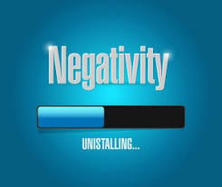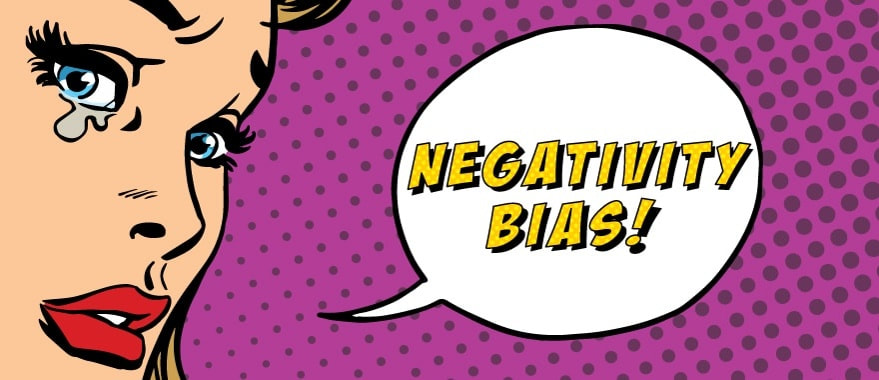
Have you ever experienced any of these?
- You had an argument with someone two days ago, but on reflection you can see that it was okay. But you just can't stop thinking about the negative things that were said and how angry and hurt you are.
- Something embarrassing that you did years ago seems to every now and again pop into your head making sure you relive the shame and negative feeling of that moment.
- Things are not going how you think they should and you're frustrated, angry, shut-down and unhappy.
- You're having an ordinary discussion with friends when suddenly somebody is offended by something you said. It was obviously not intentional, but the negative reaction to you sticks with you, sometimes for years.
Why does this happen to us and should you be worried? Actually it's quite normal. Our brains have evolved to ensure that we survive – and the fact that we are the ones here is proof that this survival technique works. What we do with the appearance of negativity in our thoughts is crucial however.
Our ancestors developed a highly attuned ability to detect something negative in the environment. Our brains evolved from people who always erred on the side of caution - and so survived. In short, humans are more sensitive to negativity than to positivity. Some studies even show the memories of negative events are laid down almost instantly, whereas positive events need to be experienced for longer to be remembered (by longer, we mean 15 to 20 seconds.)
Psychologists have come to know this as Negative Bias. It's also, by the way, why we are prone to see the glass as half empty...
How do we derail our brain's negativity bias and experience a more positive life?
Here are some of the neurological and psychological tricks that will help:
- Look around you – actually make an effort to pay attention to what's happening - and search out the positive. Every situation is filled with positive, negative and objectively neutral things to you. This puts you in charge of what you notice, rather than your brain taking over and utilising negative bias.
- Allow positive events, thoughts and feelings to linger. Paying attention to them, experience them for a longer time; savouring them. This gives your brain a great chance to remember the positive things and gives you the ability to re-experience them.
- Imagine your brain laying down the memories, creating a path that leads to a wonderful place filled with positive experiences - experiences that are real, are yours, and can be accessed at any time. This helps you to be free from needing positive experience to keep you happy, as you can often find something positive within yourself.
- Take a few moments before you respond to things. Allow yourself the opportunity to respond to the positive rather than the negative. Because our brains see the negative so quickly we need to give it time to become aware of the positive. It gets easier over time! This one has the added advantage of bringing out positivity in other people.
- Express gratitude. An awareness of the fortunate aspects of your life, and being actively grateful to people who are helping you (or even just the person making your coffee) exercises our positivity muscles and demonstrates to our brains that the world is okay.
Your negative bias is there to help you, but if you let it be in charge it can make your life unnecessarily unpleasant. Listen to it, but don't let it drive.
I want to note that a negative experience is different from a traumatic experience. We respond significantly neurologically and psychologically to trauma. This blog post does not indicate how to deal with trauma.


 RSS Feed
RSS Feed